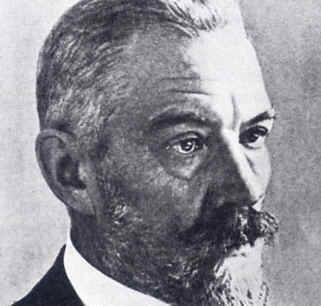Theobald von Bethmann Hollweg is most famous as the Chancellor of Germany at the start of World War One. Bethmann Hollweg was also the politician who sanctioned the use of unrestricted submarine warfare that led to the entry of America into World War One.
|
|
Bethmann Hollweg was born in 1856 in Hohenfinow, Brandenberg. He studied Law and joined the civil service. From 1905 to 1907 he served as Prussia’s Minister of Interior and took over a similar role for the whole of Germany in 1907 – a post he held until July 1909 when he was appointed Chancellor of Germany.
Bethmann Hollweg was a loyal supporter of Wilhelm II and an experienced bureaucrat. However, he found it difficult to control the admirals and generals who seemed to dominate the political scene as 1914 drew nearer and nearer. From 1909 to 1913, Bethmann Hollweg tried to form a diplomatic friendship with Britain. However, he was out of tune with most other influential politicians in Germany. When it became clear to Bethmann Hollweg that he had failed in his attempt to pacify Britain, he went to the opposite extreme and supported a policy for a short sharp localised war against any nation that opposed Germany and threatened her position within Europe.
As the war clouds gathered towards the autumn of 1914, it became clear to Bethmann Hollweg that the idea of a localised war was not going to happen and that Europe was swiftly moving to a major continental conflict. He therefore did a volte face and did all he could to avoid a war that was to all intents unavoidable by the end of July 1914.
For the first two and a half years of the war Bethmann Hollweg was able to delay the navy’s call for unrestricted submarine warfare. However, in January 1917 as a result of Germany’s increasingly dire military position, Bethmann Hollweg gave his support for unrestricted submarine warfare – a policy that was to anger America so much that she joined the war on the side of the Allies.
In July 1917 Bethmann Hollweg was forced out of office when both Luderndorff and Hindenburg threatened to resign if he did not leave office. Against such a formidable pair, Bethmann Hollweg had no choice but to hand in his resignation. This left Luderndorff and Hindenburg in such a powerful position that they ruled as effective dictators.
His fall from grace has led to some historians labeling him as a weak politician. However, in the climate of the day, senior military figures in most if not all combatant nations reigned supreme. That Bethmann Hollweg was cast aside by Luderndorff and Hindenburg in the summer of 1917 was symptomatic of the power the military had in Germany and his swift fall from grace can simply be explained by the power the military had gained at the expense of politicians.
Bethmann Hollweg died in 1921.

